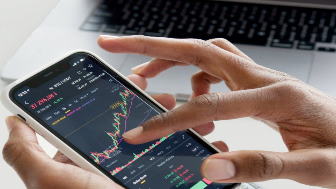What to expect when using a good VPN – quick look at the pros and cons; Ensures privacy and anonymity as your online data and internet traffic
A VPN or Virtual Private Network is a technology that allows a user to create a secure and encrypted connection over the internet. It provides a secure and private connection between two or more devices over a public or private network. The purpose of a VPN is to encrypt the transmitted data between devices, making it more difficult for hackers or other malicious actors to intercept or access the data. This essay will discuss the basics of VPNs, their importance, and how they work.
What are the Advantages of a VPN?
A VPN, or Virtual Private Network, offers several advantages, including:
Security: One of the primary advantages of using a VPN is its added security. When you connect to the internet through a VPN, your data is encrypted and transmitted through a secure tunnel. This makes it much more difficult for hackers, snoopers, or other malicious actors to intercept and steal your data.
Privacy: Another important advantage of a VPN is that it can help protect your privacy online. When you use a VPN, your internet service provider (ISP) cannot see what you’re doing online or track your online activity. This can be especially important for those concerned about their online privacy.

Access to geo-restricted content: Many websites and streaming services use geo-restrictions to limit access to their content based on the user’s location. With a VPN, you can bypass these restrictions and access content from anywhere in the world. For example, you can use a VPN to access Netflix content only available in other countries.
Improved performance: Sometimes, using a VPN can improve your internet performance. A VPN can help reduce network congestion and improve network stability. It can also help prevent bandwidth throttling by your ISP, which can slow down your internet connection.
Remote access: A VPN can be especially useful for remote workers or those who travel frequently. With a VPN, you can connect securely to your company’s network from anywhere. This means you can access important files, applications, and other resources as in the office.
Cost-effective: Finally, VPNs can be cost-effective for businesses and individuals who want to protect their data and privacy. VPNs are often less expensive and easier to set up and maintain than other security measures, such as firewalls or intrusion detection systems.
What are the Disadvantages of a VPN?
Is there a downside to using a VPN?

While VPNs offer many advantages, there are also some disadvantages to consider. These include:
Slower internet speed: One of the main disadvantages of using a VPN is that it can slow down your internet speed. This is because your data has to travel through an encrypted tunnel, which can add some latency to your connection. This can be especially noticeable if you’re using a VPN to connect to a server that is located far away from your physical location.
Dependence on VPN provider: When you use a VPN, you entrust your data and privacy to the VPN provider. Your data could be at risk if the VPN provider is hacked or compromised. Choosing a reputable VPN provider with a strong security and privacy track record is important.
Cost: While VPNs can be cost-effective for businesses and individuals, there are still costs associated with using a VPN. Some VPN providers charge a monthly or yearly fee, and additional costs for premium features or support may exist.
Compatibility issues: Some applications and services may not work properly when you’re using a VPN. For example, some online banking sites may flag your account for suspicious activity if you use a VPN to access them.
Complexity: Setting up and configuring a VPN can be complex, especially for those unfamiliar with networking and security. This can be a barrier for some individuals and businesses who may not have the resources or expertise to manage a VPN independently.
Reduced anonymity: While VPNs can help protect your online privacy, they are not a complete solution for anonymity. Your VPN provider can still see your IP address and some information about your online activity. Additionally, if you use a VPN to access services that require personal information, such as email or social media, your true identity could still be revealed.
What Is a VPN & Why Do I Need It?
A VPN or Virtual Private Network is a technology that allows a user to create a secure and encrypted connection over the internet. It provides a secure and private connection between two or more devices, over a public or private network. The purpose of a VPN is to encrypt the transmitted data between devices, making it more difficult for hackers or other malicious actors to intercept or access the data. This essay will discuss the basics of VPNs, their importance, and how they work.
VPNs are important for a variety of reasons. They provide users with a secure and private connection to the internet, which is especially important for those who use public Wi-Fi networks. Public Wi-Fi networks are often unsecured, making them easy targets for hackers and malicious actors. Using a VPN can help protect users from these threats by encrypting their data, making it more difficult for hackers to intercept.
VPNs are also important for those who live in countries with internet censorship. In many countries, the government censors the internet, blocking access to certain websites and services. A VPN can help bypass these restrictions, allowing users to access the internet freely and without censorship.
Finally, VPNs are important for those who want to access geo-restricted content. Streaming services and websites often use geo-restrictions to limit access to their content based on the user’s location. Using a VPN can help bypass these restrictions, allowing users to access content they would otherwise be unable to view.
How to watch overseas content with a VPN
To watch overseas content with a VPN, follow these steps:
Choose a reputable VPN provider: First, you’ll need to choose a VPN provider that offers servers in the country where the content you want to watch is available. Look for a provider with a strong track record of security and privacy, and make sure they have servers in the location you need.
Install the VPN software: Once you’ve chosen a VPN provider, you’ll need to install their software on your device. Most VPN providers offer software for Windows, Mac, iOS, and Android devices.
Connect to a server in the country where the content is available: Once you’ve installed the VPN software, you’ll need to connect to a server in the country where the content you want to watch is available. For example, if you want to watch US Netflix from outside the US, you’ll need to connect to a VPN server in the US.
Launch the streaming service: After you’ve connected to the VPN server, launch the streaming service you want to use. You should now be able to access previously unavailable content due to geo-restrictions.
Enjoy the content: Once you’re connected to the VPN and have launched the streaming service, you should be able to watch overseas content from anywhere in the world.
It’s worth noting that not all streaming services are compatible with VPNs, and some may actively try to block VPN connections. Additionally, using a VPN to access overseas content may violate the service’s terms. Always check the terms and conditions of the streaming service before using a VPN to access their content.
Is a VPN even worth it?
The answer is yes — VPNs are worth it. If you value your online privacy, a VPN is one of the best tool. A VPN encrypts your internet traffic, making it more difficult for hackers, snoopers, or other malicious actors to intercept and steal your data.
VPNs can be an affordable way to protect your online security and privacy compared to other security measures like firewalls or intrusion detection systems.
Is it illegal to use VPN for Netflix?
Using a VPN to access Netflix may not necessarily be illegal, but it is against Netflix’s terms of use. Netflix uses geo-restrictions to ensure that its content is only available in certain regions. By using a VPN to bypass these restrictions, you may be violating Netflix’s terms of use.
While there is no law against using a VPN to access Netflix, Netflix may take action against users who do so. Netflix actively blocks VPN connections and may revoke your access to their service if they detect you using a VPN to access their content.
It’s worth noting that using a VPN to access content unavailable in your region is a common practice, and many people do so without facing any legal or other consequences. However, it’s important to be aware of the potential risks and to make an informed decision about whether or not to use a VPN to access Netflix.
Can VPN get hacked?

While VPNs are generally considered to be a secure way to protect your online privacy and security, they are not immune to hacking attempts. Here are some potential ways that a VPN could be hacked:
Vulnerabilities in the VPN software: Like any software, VPNs can have vulnerabilities that hackers can exploit to access your data. VPN providers regularly release updates to fix known vulnerabilities, so keeping your VPN software up to date is important.
Weak encryption: VPNs use encryption to protect your data, but if the encryption is weak, hackers may be able to crack it and access your data. Make sure your VPN uses strong encryption, such as AES-256.
DNS leaks: Sometimes, a VPN may leak your DNS requests, allowing hackers to see which websites you visit. Ensure your VPN has built-in DNS leak protection to prevent DNS leaks.
Malware: If your device is infected with malware, hackers may be able to bypass your VPN and access your data. Keep your antivirus software up to date to protect against malware.
Phishing attacks: Hackers may use phishing attacks to trick you into giving them your VPN credentials, allowing them to access your data.
It is important to choose a reputable VPN provider that uses strong encryption and regularly updates its software to fix known vulnerabilities. Additionally, be cautious when entering your VPN credentials and be on the lookout for phishing attempts.
Can someone find my VPN?
While someone can find out you are using a VPN, it is generally difficult. By choosing a reputable VPN provider and configuring your VPN properly, you can minimize the risk of detection.
If you use a trustworthy VPN service, your browsing activities become illegible to snoopers. However, VPN users are traceable online by Internet service providers (ISPs), and even governments.
What are the best VPN’s
The best VPNs for private streaming and gaming.
- ExpressVPN Private and secure internet access worldwide on any device. 24/7 support
- Surfshark Unlimited devices – 24/7 support – 3200+ servers in 100 countries – No-logs policy – RAM-only servers
- NordVPN NordVPN Coupons
- ProtonVPN VPN with extra security features
- Private Internet Access PIA VPN, strict no-logs policy, world-class server infrastructure
- IPVanish military-grade encryption, a kill switch, advanced protocols, and DNS/IP leak protection



